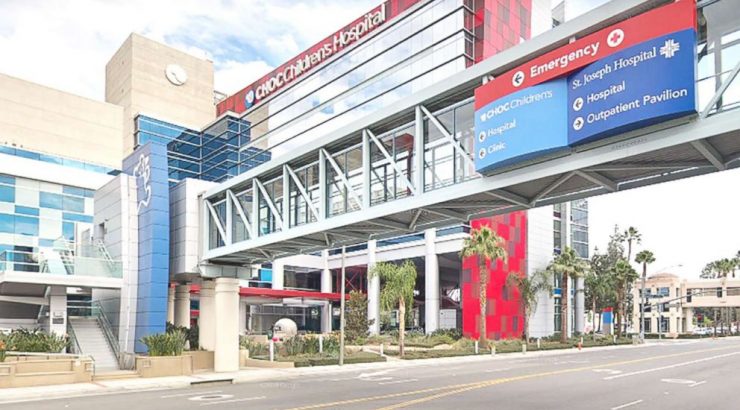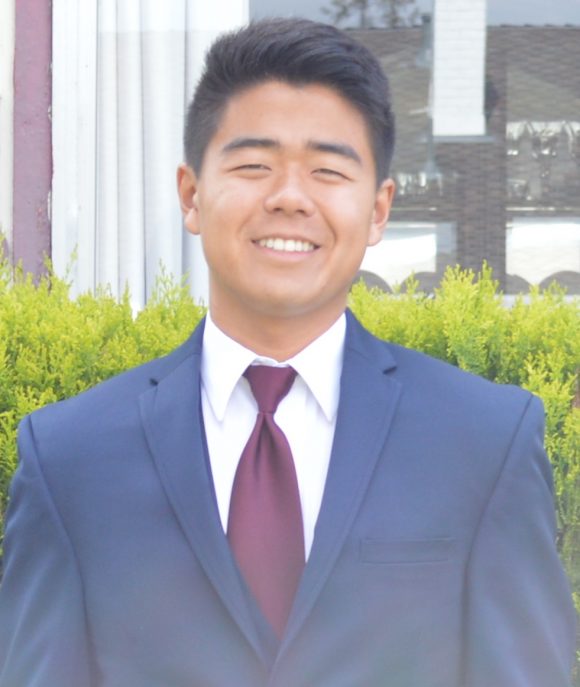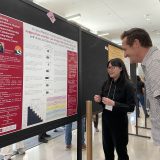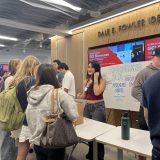
Optimizing Volunteer Opportunities Junior Shun Kato shares how his volunteer experience led to job offer
October 11, 2019
 Shun Kato is a junior biochemistry and molecular biology major with a minor in health sciences. In the future, he hopes to combine his passion for both research and patient care in order to pursue an M.D/Ph.D degree that will allow him to be a physician-scientist.
Shun Kato is a junior biochemistry and molecular biology major with a minor in health sciences. In the future, he hopes to combine his passion for both research and patient care in order to pursue an M.D/Ph.D degree that will allow him to be a physician-scientist.
As a very involved student, he is a member of several student organizations and is on the executive board for STEMtors. He also voluntarily works in Dr. Rakesh Tiwari’s research lab at Chapman’s School of Pharmacy at the Rinker Health Science Campus. There he works on peptide synthesis and drug delivery research to gain knowledge about the research field and hoping to get his research work published. Outside of school, Shun has volunteered at St. Joseph Hospital in the emergency care center where he is in charge of cleaning and restocking rooms in the emergency rooms as well as escorting patients to their rooms.
This past summer, Shun was offered a position to work as a medical scribe for Dr. Camilon, an ENT specialist at CHOC (Children’s Hospital of Orange County). Shun shared with us how he got the position and what he learned from the experience.
Q&A with Shun:
Q: How did you learn about this opportunity?
SK: “I used to volunteer at St. Joseph Hospital in the morning from 5:30-9:30 AM on Wednesdays before my class at 10:00AM. During one of my shifts, I helped out Dr. Camilon’s wife, Dr. Molarte who is an ophthalmologist. Coincidentally, I escorted Dr. Molarte to her brother’s room who was getting ready for surgery that day. As we walked to her brother’s room, Dr. Molarte asked me about my life and career aspirations. We talked for what turned out to be around 20 minutes just outside her brother’s room and she was very impressed with my drive and attitude towards making my dreams come true. She gave me the phone number to her and Dr. Camilon’s medical office at CHOC and told me to give them a call to interview for a medical scribing position.”
Q: What was your responsibilities as a medical scribe?
SK: “As a medical scribe, my tasks included bringing patients back to their rooms, asking various questions about their history as well as restocking rooms and helping Dr. Camilon during medical examinations by taking note of his diagnosis for the patients. Additionally, I learned how to request authorization for procedures and visits to the office which is another important aspect of working in the medical field. I worked as a scribe during the day and usually ended my shift around 5 PM.”
Q: What did you learn from the experience?
SK: “I learned a variety of things about the medical field, as well as life in general. One of the key takeaways is that in every work environment there is a diversity in the people that one interacts with. Learning how to adapt to the circumstances and being flexible with every patient is important to succeed. No two patients are the same and each person has a different story and symptoms so it is important to be on your feet and ready for anything that is thrown your way. I also learned that in both lab and work, patience is a very important quality to have in your toolkit. In a world of instant gratification, not many people have the ability to accept and learn from failure. I, myself, was guilty of this when I first started at work and in the lab. I expected to succeed without any setbacks and would often be very hard on myself when I forget to ask the simplest of questions to patients or not know some of the medical terminology when taking note of patient’s diagnosis or history, needing Dr. Camilon to clarify things. It took me an entire month to finally be calm at work and not constantly worry about what was about to come next. Even now, I see myself as very inexperienced compared to my other coworkers and mentors that I work with. Any task will become easier over time and repetition, therefore not dwelling on mistakes, but approaching the situation with a stronger mindset is what helps me in my path to being a physician-scientist.”
Q: What advice do you have for students looking to apply to similar opportunities?
SK: “As cliche as it may sound, no matter how small the window may be, always take advantage and approach every opportunity with 100% dedication. At first, when I applied to volunteer at the admitting desk at a hospital, I was just eager to get my foot into the door in a hospital setting. There are much more hands-on positions even as a volunteer, but I chose something that worked with my schedule and would allow me to see what goes on at a hospital from a more broad perspective. Believe me, I had no intention of meeting a doctor and becoming a scribe but I see this as my dedication of going every week at 5 in the morning paying off. To wrap it all up, sometimes connections and being at the right place at the right time will open up many doors that you never would have thought was possible.”
Q: How has your Chapman experience prepared you for this opportunity?
SK: “Chapman has prepared me for the opportunities I have been given by providing me with the most admirable mentors and faculty. Each mentor that I have had the privilege of coming into contact with has allowed me to mature as a student. I have acquired many different aspects of my personality from a variety of different people and I can easily say that I am not the same person that first stepped foot on Chapman two years ago. Whether it be my peers or a professor, every interaction that I have had at Chapman has slowly molded me into the person I am today and will keep building me until the day that I accomplish my goals. Without this close-knit community that Chapman creates, I would not be half the person I am today.”

